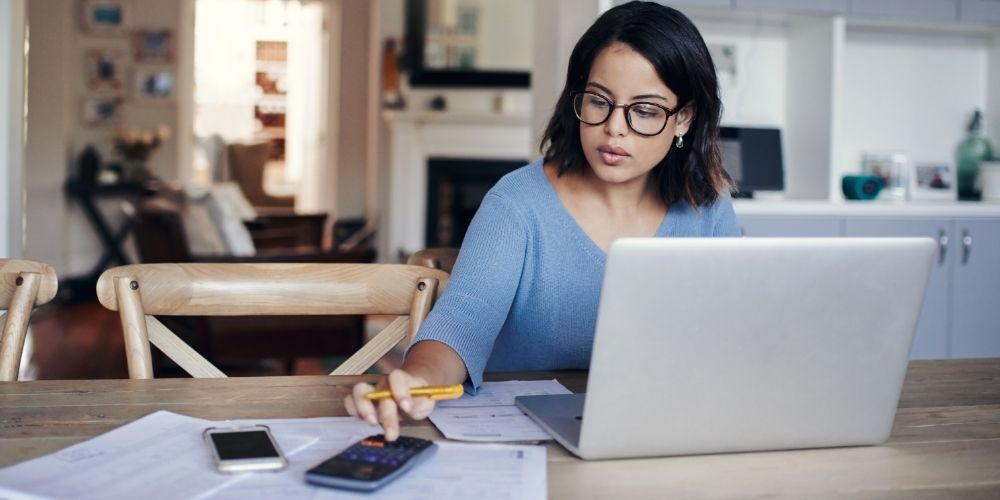Single person mortgage: Can I get a mortgage on my own?
Thinking of buying a house on a single income? Read our helpful guide to a single person mortgage before you start your application.

If you’re single, you might find the idea of getting a mortgage to buy your own home intimidating. It’s easy to think that without the help of a partner, you’ll struggle to even afford the costs of becoming a homeowner.
However, with the right know-how, you can give yourself the best chance of securing a mortgage deal. To help you out, here’s our guide to getting a single person mortgage.
Can a single person get a mortgage?
The simple answer to this question is: yes. However, we should caveat that answer by saying, like a mortgage with a partner, it all depends on your circumstances and other factors beyond your control. Things like the housing market, economic climate and the lending policy of any mortgage provider you apply with.
Essentially, what you need to do is ensure you’re in the best place possible financially before you apply for a mortgage. Of course, this can be more difficult if you’re relying on just your own income. However, while it may take longer, you can get to where you need to be if you’re patient and determined.
How to get a mortgage as a single person
There are some things you can do to put yourself in the best position to secure a single income mortgage, including planning, saving and being realistic. Follow our tips below and you’ll be on the right track.
Set expectations and plan ahead
Buying your first home on your own is a big step, but it can be achievable with the right preparation. It’s likely that you will be trying to buy a smaller property, rather than something larger, which can make the transaction more affordable, so it’s worth setting your expectations accordingly.
If you’ve been renting before applying for your first mortgage, you’ll already be well aware of the extra costs, such as utilities and council tax, that you need to consider alongside your monthly payment — if not, it’s worth doing some research on what costs you need to budget for. On a positive note, if you’ve been renting in the current climate, you may find that the payments you’ve been making are actually more expensive than the standard monthly mortgage payment, so you may end up making a saving.
Be prepared to budget and save
Preparing a mortgage application for a solo home purchase may require an adjustment in how you save and budget, especially if you apportion a significant amount of your income to non-essential expenses. However, it’s a step that’s worth taking when the end goal is buying a property that will benefit you in the long run.
The main cost you will initially be aiming to afford is the deposit for your mortgage. Take some time to consider every expense in your current budget, from your current living situation to your daily spending habits. You may need to ask yourself tough questions: is driving to work a necessity? Are you overpaying on bills? Could you shop somewhere cheaper for groceries? It might be difficult to make lifestyle changes, but it’s worth keeping your end goal in mind and how worthwhile all your efforts will be.
Be realistic about how much you can borrow
When you are buying a house on your own it can be an exciting time with the prospect of having your own space. While the prospect of becoming a homeowner is definitely worth celebrating, it’s important that you remain realistic about what level of mortgage you will be able to secure from your chosen lender.
It’s vital that you keep your personal financial limit in mind and avoid becoming caught up in all the excitement. It’s worth going through your finances and deciding how much you can realistically afford to cover on your own without stretching your budget too far. Ensure you maintain some flexibility, be strict with yourself and consider any ‘what ifs’ that might be on the horizon.
Your deposit will be the major upfront cost of securing a mortgage. An amount of 10% of the mortgage value is generally recommended as a target to save for. However, if this feels like a stretch, it may be worth looking into lenders that offer 95% loan-to-value mortgages. Be sure to account for additional fees that will need to be paid alongside your deposit so they don’t end up being a nasty surprise later.
Get your documentation ready
It’s well known that any mortgage application involves quite a lot of preparation, but an upside of buying on your own is that there is quite a bit less paperwork involved than when purchasing with one or more other parties. After all, you only have to gather together your own documents to begin the all important application.
To get the process off to a smooth start, make sure that you have prepared all of the necessary documents in advance. You’ll likely need to provide your chosen lender with the following items:
- ID (passport or driving licence)
- Proof of current address
- Proof of income
- Proof of your deposit
- Recent bank statements from the previous three months
- Up to three years’ worth of payslips (even if you are self-employed)
Know how your credit record might impact your application
Whether you’re applying for a mortgage with a partner or on your own, it’s important to know how your credit record can impact the process. Many lenders will take your record into consideration when assessing an application, and the outcome can affect various aspects, from whether you’re initially accepted to how much they’re willing to lend.
However, if you do have a couple of setbacks on your credit record, it doesn’t mean that you can’t get a sole person mortgage. It’s worth taking the right steps to make improvements to your credit before you apply, such as joining the electoral roll, paying your debts on time and trying to keep your credit usage well below your available limits.
You could also look into lenders that have products designed to enable homeownership for those with less-than-perfect credit. At Atom bank, we have our Near Prime mortgage range, which is designed to help those with recovering credit or just a few blemishes on their record by having no minimum credit score required to apply. Through products like these, you may be able to secure a single applicant mortgage that suits you, even if your options are limited at traditional high street lenders.
Consider any help available to you
It’s worth exploring any option that is available to you that may make securing a single person mortgage easier. Depending on your personal circumstances, you may have a loved one who is willing to help you reach your goal financially, so it may be worth having a conversation with them. Obviously, not everyone has this type of help available to them, so it might be worth looking into more formal assistance that’s out there.
The UK Government has several options that might provide some help:
- Shared Ownership schemes: You secure a mortgage for between 25–75% of a property, then pay rent to a landlord on the share that they own. There is usually an option to “staircase” upwards and buy a larger share later.
- First Homes scheme: If you’re a first time buyer and you’re buying a new build (or an older house included in the scheme), you may be eligible to get a 30–50% discount on the price of the property.
- Lifetime ISA (LISA): A Lifetime ISA is a tax-free savings account designed to help you save for either retirement or buying a home. You can save up to £4,000 a year and receive a 25% bonus to top up your savings.
Speak to a mortgage broker
Securing single person mortgages can be tricky, so it’s worth getting all the help available. A good mortgage broker is an expert in the market and will have helped a whole range of customers realise their dream of becoming a homeowner. Working with a broker can offer plenty of benefits, and they will be able to evaluate your circumstances and recommend products that work best for you.
It’s likely that your broker will have helped quite a few other single people to secure a mortgage for their home, so they’ll be well versed with what’s required. They’ll be able to answer questions like “how much can a single person borrow for a mortgage?” or “which lenders are the best choice for single people?”, so feel free to ask these questions when you meet with them. If you’ve never bought alone before, a broker can be a valuable guide.
Another major benefit of hiring a broker is that they often have access to products that you just can’t apply for without one. For example, all of the mortgages here at Atom are only available through brokers for new customers. We do this to make sure that you’re getting the right advice before you apply, whether that’s with us or someone else.
When you’re looking for a broker, it’s important to ask the right questions initially to make sure they’re a good fit and meet your expectations — be sure to read our guide to doing just that before you meet them for the first time.
Ready to go solo?
Applying for a single person mortgage can be a big step, but if you follow the tips here you will be putting yourself in a great position for success.
If you’re ready to apply, don’t forget to take a look at our mortgages, including our first-time buyer, moving home and Near Prime products.
We’ve also got more guides on our mortgage knowledge hub if you need more advice before going ahead, including:
You’ll also find lots of useful tips on our blog.
You may also like
16 tips for moving house
Read our step-by-step guide to moving house. From costs, paperwork and contracts, we’ve got you covered for a stress-free move.
